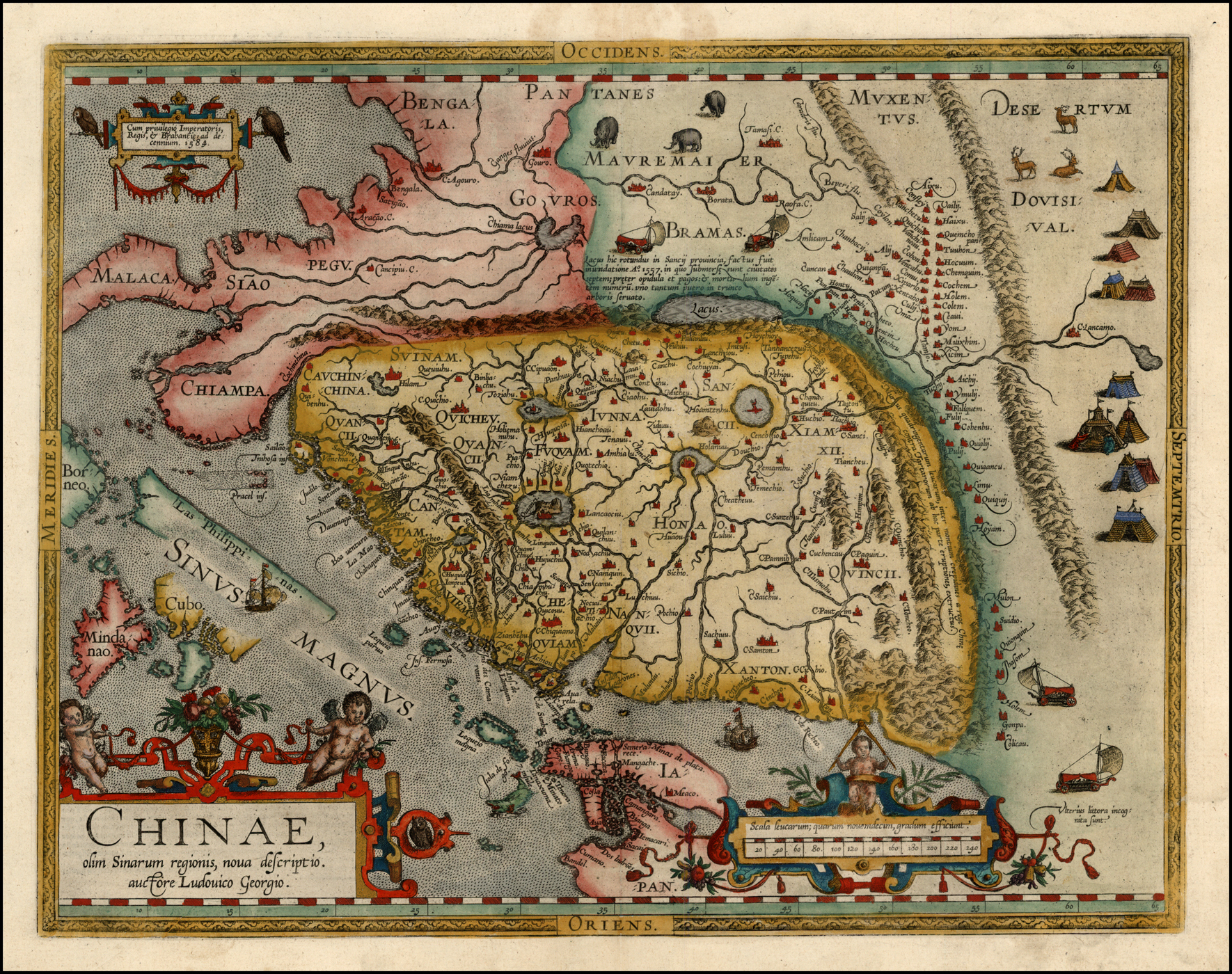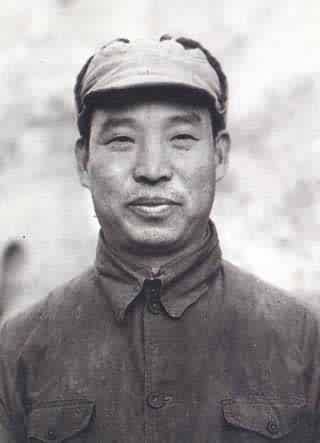|
Bai Yushuang
Li Guizhen pinyin, p ''Lǐ Guìzhēn''; 1907–1942), better known by her stage name Bai Yushuang ''Yùshuāng'', Jade Frost"), was a Chinese people, Chinese Pingju, Ping Opera Chinese opera, singer and Cinema of China, actress. She was one of "The Four Famous ''Dan (Chinese opera), Dans''" ''Sì Dàmíng Dàn'') and remains known as the "Queen of Pingju" ''Píngjù Huánghòu''). Life Li Guizhen was born in Guye District, Guye, Luan County, Hebei. As a child, she was sold to the wandering entertainer Li Jingchun and his wife Mrs Bian, who renamed her Li Huimin ''Lǐ Huìmǐn''). Her status within the family was reduced when Mrs Bian gave birth to a son, Li Guozhang. She was then forced to earn money on the street by singing stories accompanied by a small drum or other instrument. At fourteen, she began learning pingju from Dong Faliang, taking supporting roles under the stage name "Bai Yushuang". She became celebrated in Beiping (now Beijing) and Tianjin for her extre ... [...More Info...] [...Related Items...] OR: [Wikipedia] [Google] [Baidu] |
Pinyin
Hanyu Pinyin (), often shortened to just pinyin, is the official romanization system for Standard Mandarin Chinese in China, and to some extent, in Singapore and Malaysia. It is often used to teach Mandarin, normally written in Chinese form, to learners already familiar with the Latin alphabet. The system includes four diacritics denoting tones, but pinyin without tone marks is used to spell Chinese names and words in languages written in the Latin script, and is also used in certain computer input methods to enter Chinese characters. The word ' () literally means "Han language" (i.e. Chinese language), while ' () means "spelled sounds". The pinyin system was developed in the 1950s by a group of Chinese linguists including Zhou Youguang and was based on earlier forms of romanizations of Chinese. It was published by the Chinese Government in 1958 and revised several times. The International Organization for Standardization (ISO) adopted pinyin as an international standard ... [...More Info...] [...Related Items...] OR: [Wikipedia] [Google] [Baidu] |
Beiping
"Beijing" is from pinyin ''Běijīng,'' which is romanized from , the Chinese name for this city. The pinyin system of transliteration was approved by the Chinese government in 1958, but little used until 1979. It was gradually adopted by various news organizations, governments, and international agencies over the next decade. Etymology The Chinese characters ("north") and ("capital") together mean the "Northern Capital". The name was first used during the reign of the Ming dynasty's Yongle Emperor, who made his northern fief a second capital, along with Nanjing (, the "Southern Capital"), in 1403 after successfully dethroning his nephew during the Jingnan Campaign. The name was restored in 1949 at the founding of the People's Republic of China. Peking Portugal was the first European country to contact China in modern times. In Portuguese, the city is called ''Pequim.'' This name appeared in the letters of Francis Xavier in 1552. It transferred to English as "Pekin" and to ... [...More Info...] [...Related Items...] OR: [Wikipedia] [Google] [Baidu] |
Ai Lianjun
AI is artificial intelligence, intellectual ability in machines and robots. Ai, AI or A.I. may also refer to: Animals * Ai (chimpanzee), an individual experimental subject in Japan * Ai (sloth) or the pale-throated sloth, northern Amazonian mammal species Arts, entertainment and media Works * ''Ai'' (album), a 2004 release by Seraphim * ''A.I. Artificial Intelligence'', a 2001 American film * '' A.I. Rising'', a 2018 Serbian film * '' AI: The Somnium Files'', a 2019 video game * ''American Idol'', televised singing contest * ''The American Interest'', a bimonthly magazine (2005–2020) * ''I'' (2015 film), an Indian Tamil film (initial title: ''Ai'') Other uses in arts and media * A.i. (band), a Californian rock–electroclash group * All in (poker), wagering one's entire stake * Appreciation Index, a British measure of broadcast programme approval * The Art Institutes, a chain of American art schools * Non-player character, in gaming (colloquially, ''an AI'') Business * ... [...More Info...] [...Related Items...] OR: [Wikipedia] [Google] [Baidu] |
Shanghai
Shanghai (; , , Standard Mandarin pronunciation: ) is one of the four direct-administered municipalities of the People's Republic of China (PRC). The city is located on the southern estuary of the Yangtze River, with the Huangpu River flowing through it. With a population of 24.89 million as of 2021, Shanghai is the most populous urban area in China with 39,300,000 inhabitants living in the Shanghai metropolitan area, the second most populous city proper in the world (after Chongqing) and the only city in East Asia with a GDP greater than its corresponding capital. Shanghai ranks second among the administrative divisions of Mainland China in human development index (after Beijing). As of 2018, the Greater Shanghai metropolitan area was estimated to produce a gross metropolitan product (nominal) of nearly 9.1 trillion RMB ($1.33 trillion), exceeding that of Mexico with GDP of $1.22 trillion, the 15th largest in the world. Shanghai is one of the world's major centers for ... [...More Info...] [...Related Items...] OR: [Wikipedia] [Google] [Baidu] |
Japanese Empire
The also known as the Japanese Empire or Imperial Japan, was a historical nation-state and great power that existed from the Meiji Restoration in 1868 until the enactment of the post-World War II 1947 constitution and subsequent formation of modern Japan. It encompassed the Japanese archipelago and several colonies, protectorates, mandates, and other territories. Under the slogans of and following the Boshin War and restoration of power to the Emperor from the Shogun, Japan underwent a period of industrialization and militarization, the Meiji Restoration, which is often regarded as the fastest modernisation of any country to date. All of these aspects contributed to Japan's emergence as a great power and the establishment of a colonial empire following the First Sino-Japanese War, the Boxer Rebellion, the Russo-Japanese War, and World War I. Economic and political turmoil in the 1920s, including the Great Depression, led to the rise of militarism, nationalism and t ... [...More Info...] [...Related Items...] OR: [Wikipedia] [Google] [Baidu] |
Japanese Invasion Of Manchuria
The Empire of Japan's Kwantung Army invaded Manchuria on 18 September 1931, immediately following the Mukden Incident. At the war's end in February 1932, the Japanese established the puppet state of Manchukuo. Their occupation lasted until the success of the Soviet Union and Mongolia with the Manchurian Strategic Offensive Operation in mid-August 1945, towards the end of the Second World War. The South Manchuria Railway Zone and the Korean Peninsula had been under the control of the Japanese Empire since the Russo-Japanese War of 1904–1905. Japan's ongoing industrialization and militarization ensured their growing dependence on oil and metal imports from the US. The US sanctions which prevented trade with the United States (which had occupied the Philippines around the same time) resulted in Japan furthering its expansion in the territory of China and Southeast Asia. The invasion of Manchuria, or the Marco Polo Bridge Incident of 7 July 1937, are sometimes cited as an alternat ... [...More Info...] [...Related Items...] OR: [Wikipedia] [Google] [Baidu] |
Women's Lives
''Women's Lives'' ''Fùnǚ Shēnghuó'') was a monthly Chinese periodical which was published from July 1935 to January 1941. It began in Shanghai as the house journal of the Shanghai Women's National Salvation Society ''Shànghǎi Fùnǚjiè Jiùguóhuì'') under the editorship of the Communist Shen Zijiu. In November 1937, it moved to Wuhan and, later, was again forced to relocate to the provisional Republican capital Chongqing, where Cao Mengjun served as editor-in-chief. Its stated aim was to "enlighten the majority of women so they can achieve their own emancipation through participation in social movements". The inaugural issue included an article arguing women should devote themselves to nationalism and social reform. It opposed the return of women to the home under what it called the "new good-wife and wise-mother-ism" espoused by some Nationalist politicians. When the Ping opera singer Bai Yushuang was expelled by the mayor of Beiping (now Beijing) for the revealing ... [...More Info...] [...Related Items...] OR: [Wikipedia] [Google] [Baidu] |
Mayor Of Beijing
The politics of Beijing is structured in a dual party-government system like all other governing institutions in the mainland of the People's Republic of China. The Mayor of Beijing is the highest-ranking official in the People's Government of Beijing. Since Beijing is a centrally administered municipality, the mayor occupies the same level in the order of precedence as provincial governors. However, in the city's dual party-government governing system, the mayor is subordinate to the Beijing Municipal Committee Secretary of the Chinese Communist Party (CCP). The office of Beijing Party Secretary () has always historically been a high-profile post. Since the founding of the People's Republic, the Party Secretary of Beijing has almost always held a seat on the Politburo of the Chinese Communist Party, the country's top ruling organ. Because of Beijing's position as the national capital, the Secretary is also involved in major decision making of national events. Peng Zhen, the first ... [...More Info...] [...Related Items...] OR: [Wikipedia] [Google] [Baidu] |
Dudou
A ''dudou'' (; also known by other names) is a traditional Chinese form of the bodice, originally worn as an undershirt with medicinal properties. With the opening of China, it is sometimes encountered in Western and modern Chinese fashion as a sleeveless shirt and backless halter-top blouse. Name In Ancient Chinese, referred to a kind of helmet or hood.. By the time of the development of the dudou, it had taken on extended senses of encasing or enwrapping something as in a hood, scarf, or loose parcel. ''Dùdōu'' may thus be understood as Chinese for "belly wrap" or "cover", referring to its early use to flatten the breasts and, within traditional Chinese medicine, to preserve stomach '' qi''. Using the same characters, it is also known as a doudu. or doudou. The latter form is diminutive and is particularly used for the dudous worn by Chinese children.. Its various Chinese names are typically left untranslated in English.. In Chinese sources, the dudou is sometimes mi ... [...More Info...] [...Related Items...] OR: [Wikipedia] [Google] [Baidu] |
Catching Flies (opera)
Catching Flies (born 1991) is an English musician, DJ and record producer from London, England. His sound has been described as sitting on the "smooth, mellow side of electronic music" somewhere "between Flying Lotus and Bonobo" and "contains shades of everything from hip hop to house, from soul to jazz." He has self-released three EPs and numerous remixes for artists like Kwabs and Wilkinson. Releases Catching Flies first came to prominence in October 2012, when his remix of Mt. Wolf's track "Life Size Ghosts" began to get hundreds of thousands of hits on YouTube and he got praise from scores of music blogs. Consequently, the track raced to the number one spot on Hype Machine. This was followed by the release of his first EP, ''The Stars'', which included 3 tracks of original music, plus the Mt. Wolf remix. The EP was released by Catching Flies for free on Bandcamp and received thousands of downloads. June 2013 saw the release of ''The Long Journey Home'' EP, again comprising ... [...More Info...] [...Related Items...] OR: [Wikipedia] [Google] [Baidu] |
Dan (Chinese Opera)
''Dan'' is the general name for female roles in Chinese opera, often referring to leading roles. They may be played by male or female actors. In the early years of Peking opera, all roles were played by men, but this practice is no longer common in any Chinese opera genre. Male ''dan'' actors Male actors who specialize in playing ''dan'' are referred to as ''nándàn'' (男旦); the practice arose during the Qing dynasty due to imperial prohibitions against women performing on stage, considered detrimental to public morality. This practice of female impersonation by male actors was led by Mei Lanfang, one of the most famous dan performer. In the early years of Peking opera, all roles were played by men. Wei Changsheng, a male performer in the Qing court, developed the , or "false foot" technique, to simulate the bound feet of women and the characteristic gait that resulted from the practice. In the late Qing dynasty and the early republic, the performance of actresses became p ... [...More Info...] [...Related Items...] OR: [Wikipedia] [Google] [Baidu] |
Erhu
The ''erhu'' (; ) is a Chinese two-stringed bowed musical instrument, more specifically a spike fiddle, which may also be called a ''Southern Fiddle'', and is sometimes known in the Western world as the ''Chinese violin'' or a ''Chinese two-stringed fiddle''. It is used as a solo instrument as well as in small ensembles and large orchestras. It is the most popular of the huqin family of traditional bowed string instruments used by various ethnic groups of China. As a very versatile instrument, the erhu is used in both traditional and contemporary music arrangements, such as pop, rock and jazz. History The ''Erhu'' can be traced back to proto-Mongolic instruments which first appeared in China during the Tang dynasty. It is believed to have evolved from the '' Xiqin'' ( 奚 琴). The xiqin is believed to have originated from the Xi people located in current northeast China. The first Chinese character of the name of the instrument ( 二, ''èr'', two) is believed to come fr ... [...More Info...] [...Related Items...] OR: [Wikipedia] [Google] [Baidu] |





